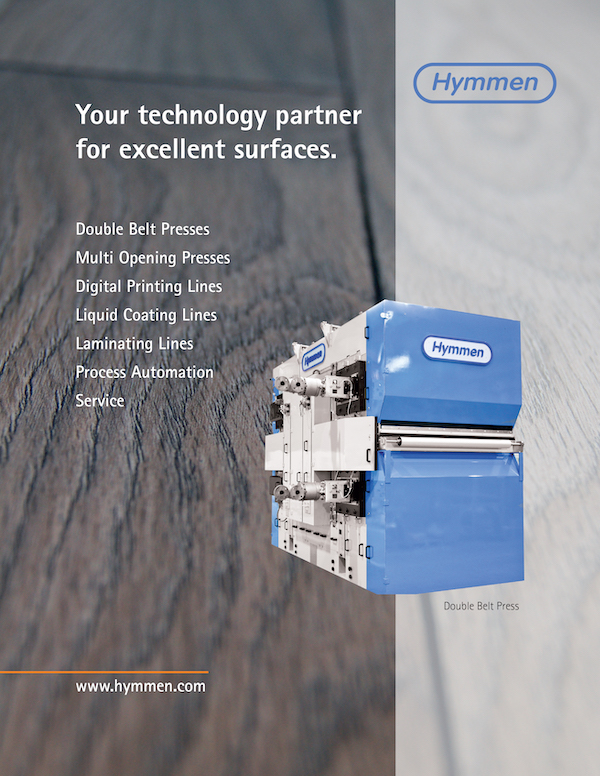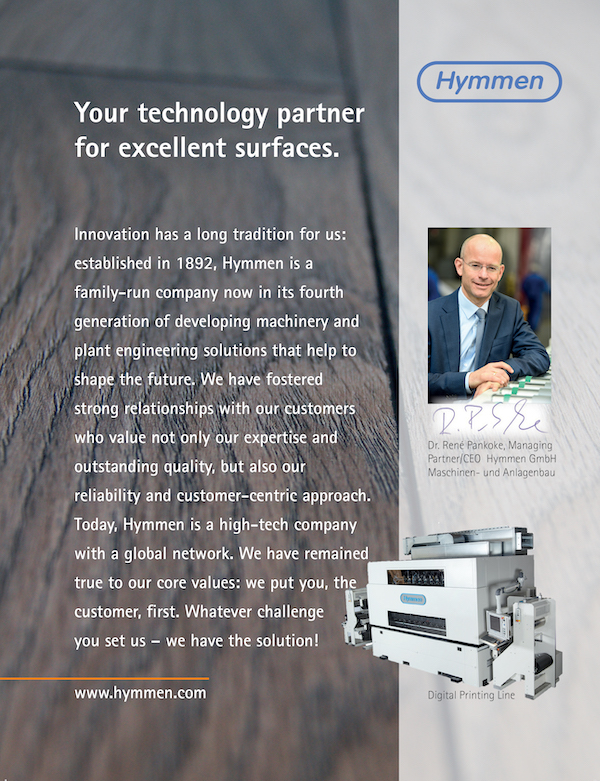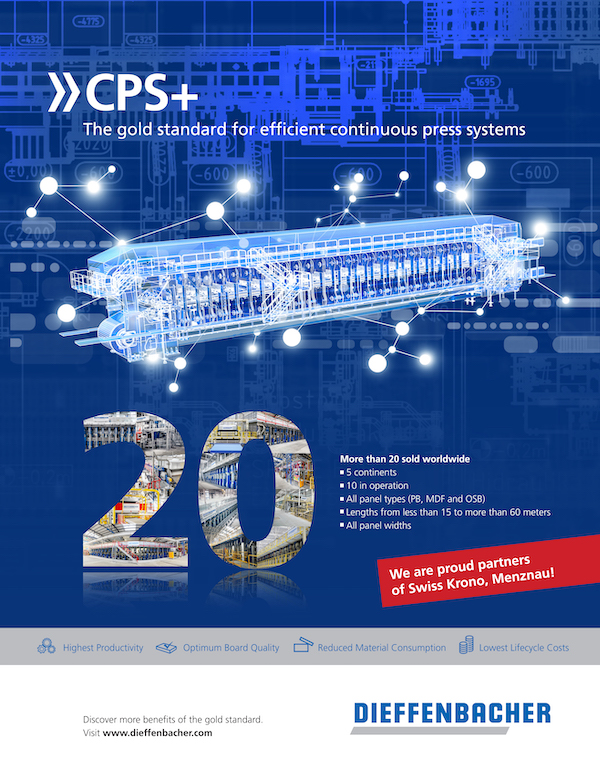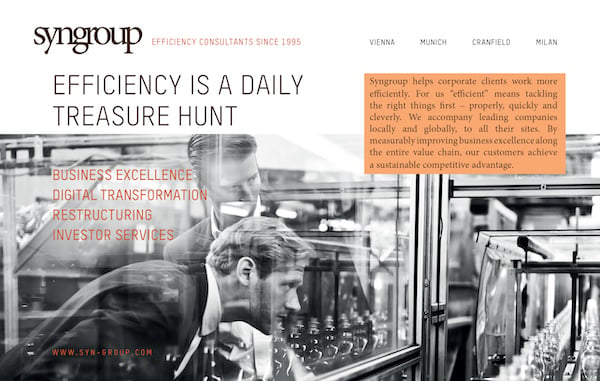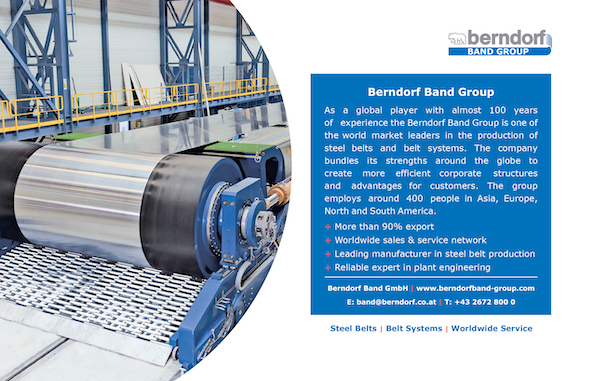Growing up in Salzburg, surrounded by a family immersed in the world of healing and medicine, it’s a bit of a mystery how Martin Brettenthaler strayed into the world of business.
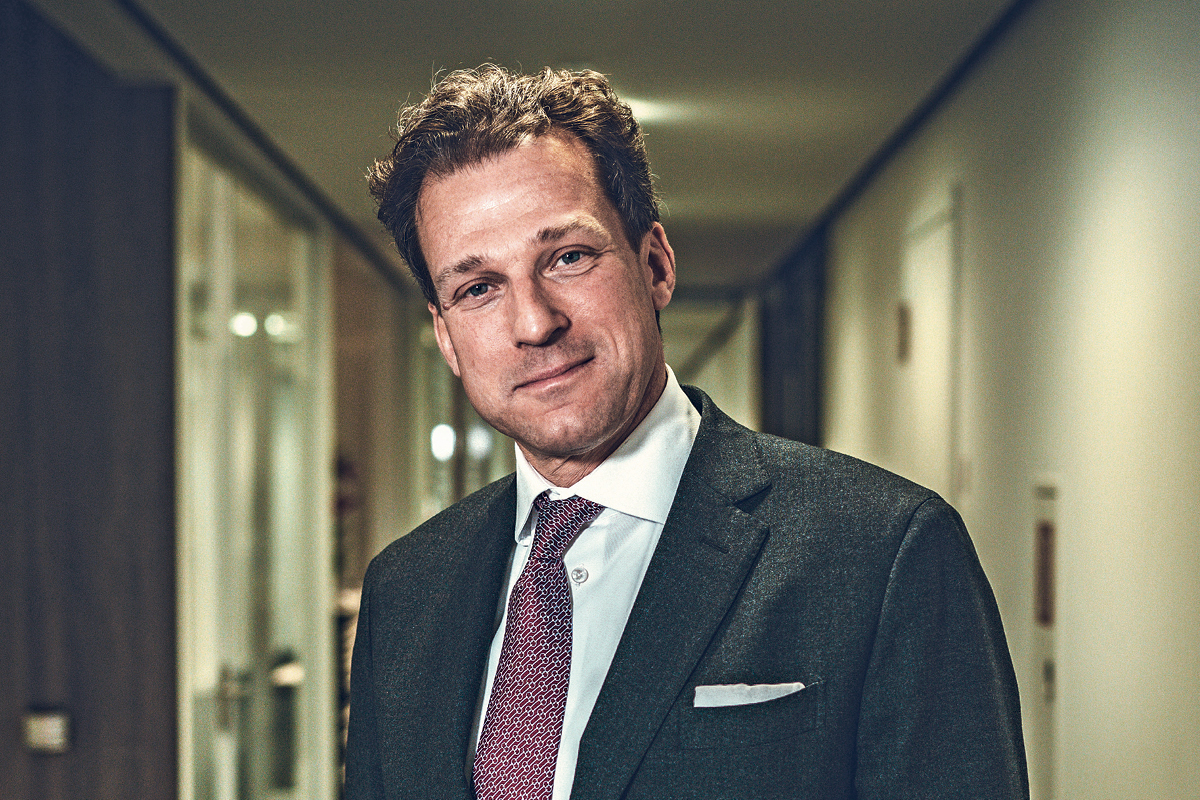
Let alone how he strayed all the way to the top to become CEO of Swiss Krono Group, one of the world’s leading manufacturers of engineered wood products. It’s not that he didn’t hold all the attributes to become a doctor.
Martin enjoys working with people, loves speaking different languages – German, French and English among them – and is fascinated with different cultures. He possessed all the key attributes needed to follow in his family’s footsteps.
“My closest family members were doctors – not entrepreneurs or businesspeople,” he reflects. “They were not interested in any of that. I liked dealing with people and I was once told that if you like to lead, you should go into business. I guess that triggered my interest to go in a different direction.”
Swiss Krono Group is a family-owned company that manufactures and supplies wood-based products to global distributors, manufacturers, architects, designers and consumers. It operates in three business areas: interiors (decorative board for furniture and production), flooring (laminate floors) and building materials (high-performance oriented strand boards, or OSB, for timber construction).
The company was founded in Menznau, near Lucerne, Switzerland, in 1966 by Austrian entrepreneur Ernst Kaindl. The Kaindl family had enjoyed a rich history in wood, having founded a sawmill in Lungötz that became a leader in wood processing and, later, one of the first to produce chipboard in 1959.
Recognising the natural supplies available, Ernst branched out to run his own business in Switzerland while his brother Matthias remained in Austria to run Kronospan.
Swiss Krono was a huge success, expanding into France, Germany, Poland, Hungary, Russia and the US. It opened its first Ukraine plant in 2000, with two more following within four years.
Ernst died in 2017, leaving behind 10 plants worldwide, more than 5,000 employees, products sold in more than 120 countries and a company that had sales amounting to CHF2 billion (€1.8 billion) during the last financial year, FY2017–18.
“We are a worldwide supplier and the largest manufacturer of laminate flooring, boasting a yearly production of roughly 145 million square metres, which accounts for half our turnover,” Martin says.
Reflecting on his career, he says his attraction to the manufacturing industry was ignited after spending several years completing internships with American companies, including household names Procter & Gamble, McKinsey & Company and Goldman Sachs, while studying business administration and economics at the University of St Gallen.
“When I started at university, I was confronted by many students who already had clear visions of what they wanted to achieve in their lives, business-wise. Not coming from an entrepreneurial environment, I basically had no clue,” Martin admits.
“But during internships at these great companies I learned quickly and when I graduated I took a job as a management consultant with Boston Consulting Group, working in their Munich and Paris offices.”
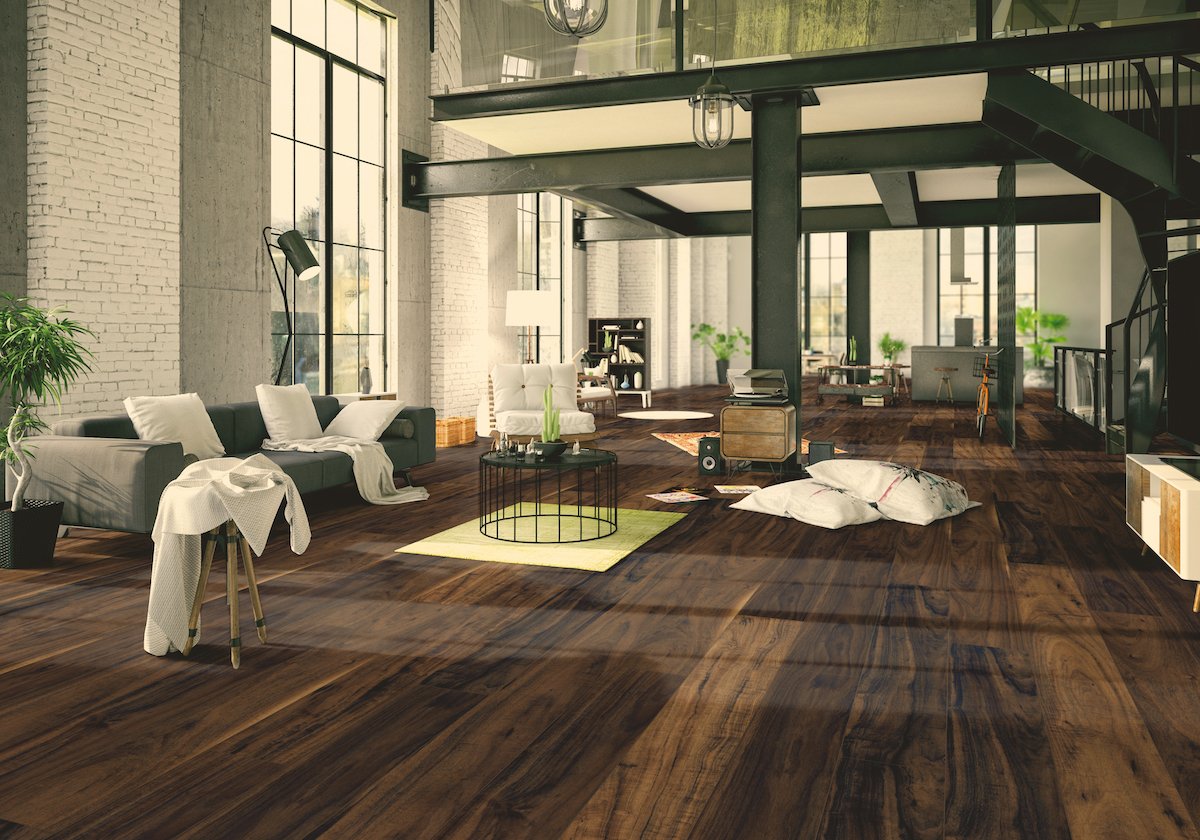
Martin says it was only by chance that he found his path to a career in manufacturing, an industry he admits that he fell in love with after joining HIAG in 1998.
He was Head of Strategic Control before working his way up to COO, restructuring and heading the industrial sectors of the group, including insulating, wholesale trade, doors, pallets, and particle and fibreboard. “It was a big shock for me because, even with all my educational background, training and job experience, this was a far more pragmatic, harsh and competitive environment,” he explains.
“But I was able to learn a lot and earn the confidence of the owner, who entrusted me with big responsibilities during those early years. I had the unpleasant task of having to close down factories and then, by the time I was 30, I was basically running the whole industrial operation. Buying raw materials and making products out of them before selling them was a process I fell in love with.”
“Buying raw materials and making products out of them before selling them was a process I fell in love with.”
In 2004, Martin, along with other partners, led a management buyout of Pavatex, a leading supplier of insulation systems based on wood fibre. With his team, he positioned the company as a leading sustainable building materials player and put it on a growth path.
“This was an evolving company in Western Europe, before expanding to other countries as far as Japan,” Martin says. “However, we came under a lot of pressure when it became more difficult to manufacture in Switzerland due to the increase in value of the Swiss Franc, so we moved to France and opened up a big manufacturing unit. But by then I felt ready for a bigger, different challenge.”
The timing proved perfect when the Board of Swiss Krono Group started looking for a new CEO in 2016. Swiss Krono Group’s Board of Directors is chaired by Ernst Kaindl’s daughter Ines, who stepped up to the position in 2009.
At BAU 2019, the world’s leading trade fair for architecture, materials and systems, that was held in Munich in January, Swiss Krono Group presented new products including water-resistant laminate, new surfaces and a revamped Villeroy & Boch flooring line.
The company’s Aqua Robusto range is perfect for wet rooms and resistant to all types of liquids, with standing water absorbed within 24 hours, leaving no trace. The CamuStyle TX, a mix of limestone- and textile-inspired surfaces, creates a unique used look and was awarded the prestigious German Design Award 2019 in the Excellent Product Design – Material and Surfaces category.
During the exhibition, the company also presented Timber Planner, an app in German and English that enables architects, planners and installers to search hundreds of wooden components to find the exact element needed for specific construction projects. In addition, regional requirements, building class, property type, sound insulation and fire-protection regulations can be filtered to source a product more easily and rapidly.
Users can also create their own projects and easily send information about single or several components to distributors or installers.
While the company was performing well and investing heavily in production assets, it was essentially decentralised, made up of a large number of manufacturing plants, with each operating independently. “They were even competing against one another in the marketplace,” Martin says.
“At the time, the group consisted of independently run and closely defended companies; little sharing of technology or people. At the same time, all these managers had strong entrepreneurial acumen, a pragmatic approach to cost and a focus on operational excellence. This fascinated me from the beginning and still fascinates me every day.
“They were looking for somebody who could build on the strengths of the company and energise it, while elevating it to a new level.
“The challenge was to utilise that strongly successful and very proud company and its people and encourage them to journey together towards the future, in a more cooperative, more customer-oriented fashion, which would also make us more attractive to both talent and partners for potential common ventures.”
Another attraction for Martin, other than the potential to build on the company’s financial success, was the strong family spirit – in particular, the entrepreneurial spirit of Ines Kaindl.
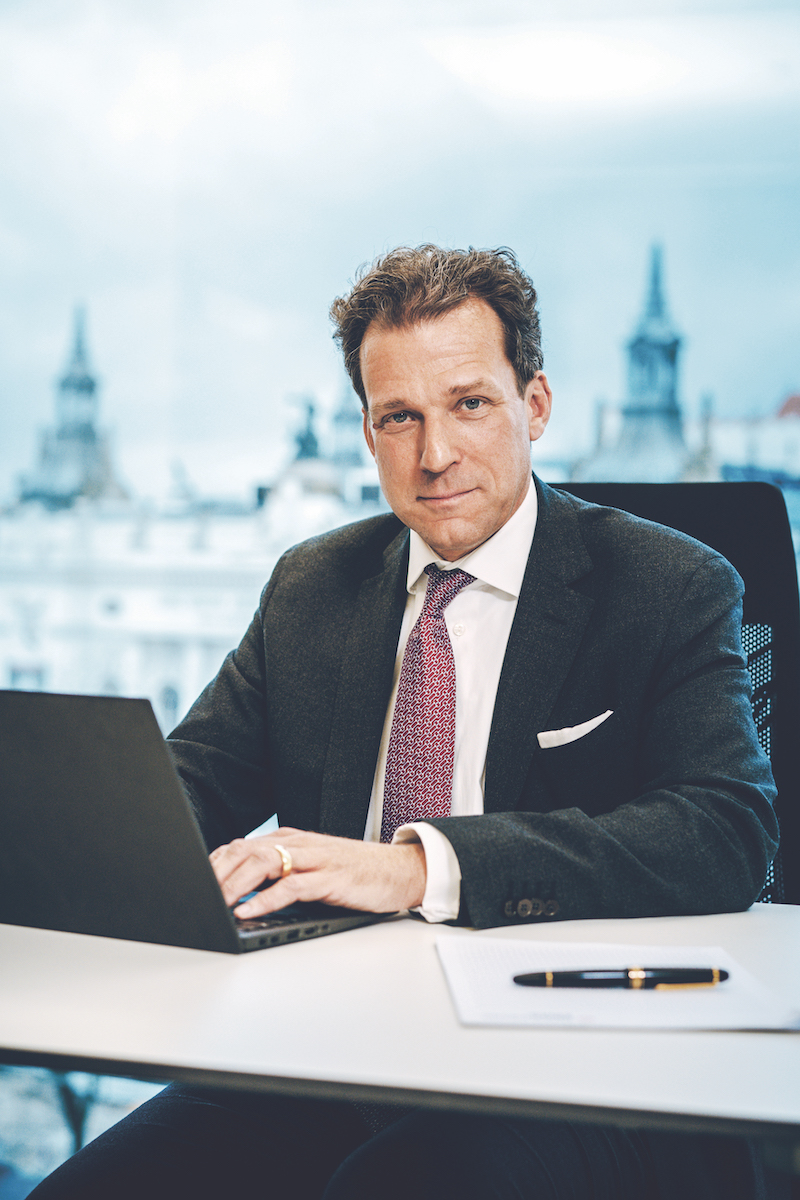
As a mother of three, she doesn’t get involved in the day-to-day operations, but maintains an unrivalled passion for her father’s company. “She’s a fine person and very committed to the company,” says Martin.
“She’s someone with a true entrepreneurial spirit and is inspirational. She made me want to work for her and her family.”
As a renewable natural resource, wood has been used as a natural raw material for thousands of years, especially in construction. However, it is evolving technology that has fine-tuned its manufacturing process.
Martin doesn’t underestimate the role that technology plays in getting this natural resource to market and he is the first to acknowledge that Swiss Krono Group’s partnerships are vital to its technical innovation, while also helping maintain strict environmental codes.
“We have to change and evolve into a company that is more solution-oriented,” he explains.
“Working with our supply partners has been key to our success, especially in terms of technology. And, of course, long-term partners build reliability and trust.
“If you have a strong balance sheet and strong financing, you tend to think you can do everything on your own,” he adds.
“But that isn’t the case and, if you constantly try to operate solo, you end up losing a lot of opportunities. That’s not the way to do things going forward. You need to team up with technology partners, suppliers and customers to get the better solutions. You can’t do everything on your own anymore.”
“You need to team up with technology partners, suppliers and customers to get the better solutions. You can’t do everything on your own anymore.”
In 2016, Swiss Krono Group commissioned Dieffenbacher to supply its new state-of-the-art chipboard plant at its Menznau site. Its innovative machine components raised industry standards around the world.
Dieffenbacher supplied the installation of the entire press system, from gluing through to raw board handling. Swiss Krono Group has also enjoyed partnerships with suppliers for decades, including the Berndorf Band Group.
“They have been with us since the beginning, when we launched more than 50 years ago. As a total solution provider, they produce steel belts for the wood industry and serve us globally,” Martin says.
“Hymmen is another example; we’ve been working very closely with them for many years. They supply us with specialised high-pressure laminate presses – they have the only machines able to produce embossed-in-register (EIR) structures on continuously pressed laminates (CPL).
“We also have a great relationship with Syngroup, who continue to give us assistance in intra-factory benchmarking, and Omya, who are working on a project to replace part of the wood in our panels with alternative natural materials. Not only will this provide important cost savings but also improvements to product quality.”
Swiss Krono, which manages the chain from purchasing the wood to preparing it for industrial processing, is pioneering the industry in aspects of sustainability by focusing on using its resources as efficiently as possible, slashing emissions from volatile organic compounds (VOCs) and reducing their use of formaldehyde.
While engineered wood naturally emits some formaldehyde, more of the chemical can be found in conventional adhesive systems for wooden panels. Since 2016, Swiss Krono’s OSB products have been bonded with formaldehyde-free binders, making them among the best building materials available to ensure personal wellbeing.
At Interzum 2019 in Cologne, Swiss Krono Group launched Be.Yond, the only board on the market with a bio-adhesive system. “We strongly believe that the health of people, especially our children, is of paramount importance,” Martin says.
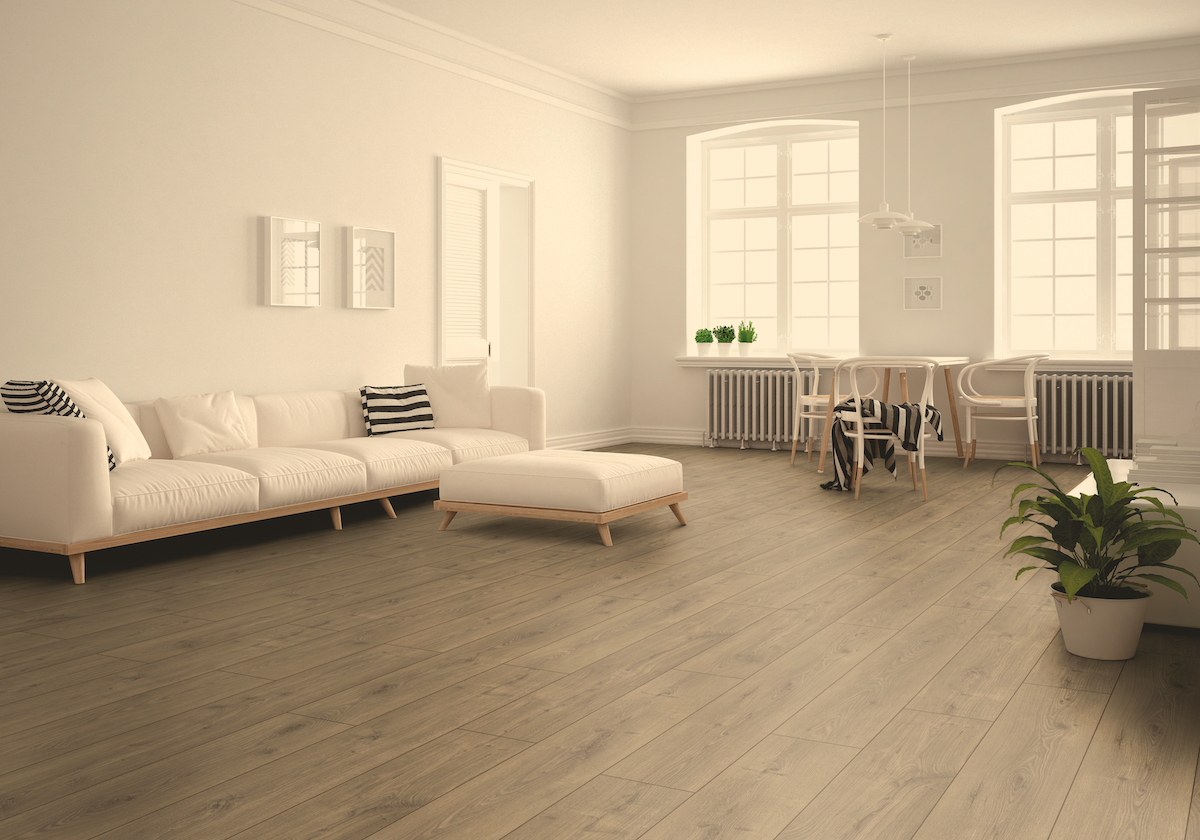
“These days, due to homes being better insulated, you have less natural airflow, so there is a tendency for a higher concentration of emissions from all types of products in the air. It was a strong priority for us to develop an efficient product erring on the safer side, while still being good enough and able to be produced at a reasonable cost, because that’s obviously the trade-off you have to face.”
In a world that’s focused on climate change and CO2-reduction programs, and as a business reliant on natural wood, the Swiss Krono Group must lead by example.
The company keeps its consumption of raw materials, water and energy as low as possible, reuses wastewater, energy and heat and uses production scraps to minimise its use of fossil fuels.
Martin emphasises that, once again, innovation is imperative for the management of energy, both electrically and thermally sourced. “You have to be creative and very strongly oriented towards the state-of-the-art and energy technologies in order to be as CO2 efficient as possible,” he says.
In describing the company culture, Martin refers to “the Swiss Krono way of doing things”. Though he has unified the company by pulling everyone together, he insists he values the group character – one developed from strong individual members all working cooperatively.
“The Swiss Krono way of doing things means that we are aware and proud of our strengths,” he explains. “But being strong today is not enough for the future: we aim to be a little better every day and we know that we can do it.
“Two pillars characterise the Swiss Krono way of doing things. First we want to learn from the best, inside and outside our group and industry. Second, and in order to do that, we want to create a company culture of players and learners. By this, we kill two birds with one stone, making the company more innovative while enabling us to retain and attract talent in an environment where there is a shortage of skilled workers in many countries.
“We want to learn from the best – not only the best within our group but the best in our industry and beyond.”
“If you look at our products from the outside, you could perhaps think they are simple,” he says. “From the outside, the chipboard of 30 years ago looks much like the chipboard today. But, if you look at the manufacturing processes involved, you’ll see a lot has changed.
“This means we have to continuously focus on being the most efficient in production and you can only do that if you apply all the technological means at hand. You have to care meticulously for details and exploit all possibilities, and this can only be done with technology. A laminate floor from 30 years ago, for example, probably cost double and was probably five times less appealing than it is today. There are many, many small steps and improvements introduced to our products every year – every couple of months, in fact – that are important.
“The current most popular trend in laminated flooring is for it to be completely water-resistant, yet still look like a wooden floor,” Martin says. “That is a huge challenge. But we have managed to develop a laminate floor that clever: wood-based, but water-resistant.”
Martin is confident that Swiss Krono has the advantage over competitors, if nothing more than because of its strong company culture and focus on operational excellence flowing through to both its customers and employees. “This culture is firmly in place on all levels,” he says.
“We have people who are very loyal to the company, who have been working with us for a long time, and along with that loyalty is loads of experience and know-how.
“Second, because we are a family-owned, and not a public company, we are able to make decisions quickly and in a more pragmatic way. That doesn’t mean we don’t take decisions seriously, but if there is need we call everybody together and make decisions.”
What is laminate?
Laminate floors are man-made to give the look and texture of wood. Easy to install and clean, without any susceptibility to shrinking or warping, laminate floors come in different thicknesses and durability ratings. Laminate technology is based on high-density fibreboard (HDF), a wood-based material consisting of wooden fibres that have been soaked in adhesive and pressed together under heat with extremely high compression. Attractive, decorative paper protected against mechanical damage by an abrasion-resistant film is pressed onto the surface.
Outside of work, while Martin admits he’s not the type to bungee jump or climb to the highest peaks of the Himalayas, he does enjoy sport, particularly running, playing golf and skiing.
“Of course, being an Austrian living in Switzerland, skiing is not too exciting,” he laughs. “I am a family man with three daughters aged from two to 14, so I’m also handling all kinds of issues from toddler to teenager.
“I’m also interested in politics – not just the day-to-day but the long-term development of things. I like to get involved in heated political debates, even with strangers, to find out how they tick.”
Martin’s own way of thinking was challenged years ago while completing an internship at Goldman Sachs. He remembers having a rather ‘nonchalant’ attitude towards investment banking.
“I was still in business school and, while I got along well with people, I didn’t really like investment banking. It wasn’t my cup of tea,” he explains.
“But my boss was a very strong business type and one day he called me into his office and asked me to look out the window down onto the street below. He said to me, ‘There are thousands of people who would like to be here instead of you, so you’d better get your act together now and do the best that you can, or I would really recommend that you go skiing instead, because it’s not worth doing things that you don’t like to do.’
“From that day on, I have tried to inspire others and always do my very best, from when I wake up until late at night when I go to bed.”
Proudly supported by:

